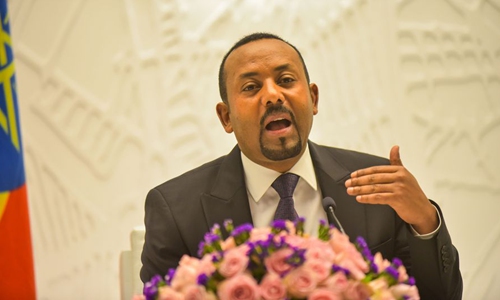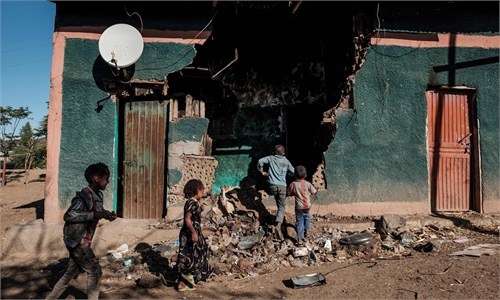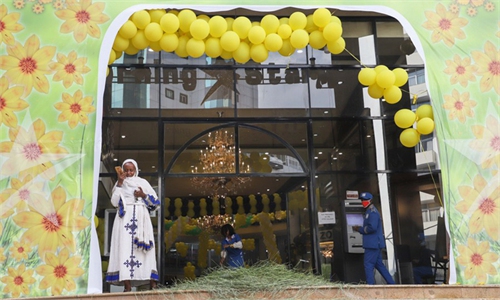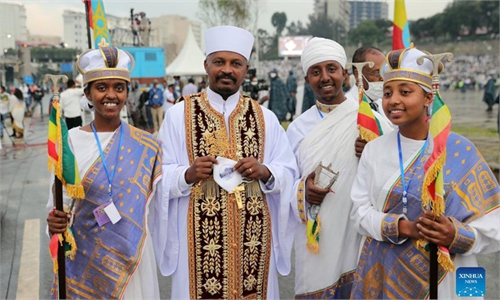
Abiy Ahmed Ali, Ethiopian Prime Minister, speaks during a press conference on regional and national issues in Addis Ababa, capital of Ethiopia, Aug. 2, 2019. Photo: Xinhua
The bamboo palace in southwestern Ethiopia was once a formidable power base, where the now-defunct Kingdom of Kaffa hosted extravagant festivals and stored rich reserves of gold and buffalo hides.
These days, however, the royal family's descendants can scarcely pay for basic palace maintenance, while local administrators of what is now the Kaffa zone complain they lack funds even for rudimentary roadworks.
The decline of Kaffa is what activists and politicians in Ethiopia's diverse southern region describe as more than a century of underinvestment by the authorities in Addis Ababa.
But Kaffa's leaders have a plan to fix it: A referendum scheduled for Thursday that, if successful, would carve out a new South West region, Ethiopia's 11th, and funnel more federal cash their way, along with control over how it is spent.
"In the rest of the country, everything is growing and changing.
When I compare Kaffa with other places, it's still backwards," said Girma Kidane Gallito, grandson of the last king of Kaffa, who was deposed in the late 19th century.
"There are houses that haven't changed and there are roads that have not been improved" since that time, he told AFP, explaining why the referendum was necessary.
Since Ethiopia's Prime Minister Abiy Ahmed took office in 2018, similar efforts to create new regions in the south have spurred protests and bloodshed.
The tensions show how challenges to national unity go well beyond the 10-month war in northern Ethiopia against rebels from the Tigray region.
Yet officials in Kaffa are optimistic that Thursday's vote will go smoothly, allowing Abiy to shore up public support.
The debate over how best to administer the south has been shaped by the same actors fighting it out in the north.
Shortly after taking power in the early 1990s, the Ethiopian People's Revolutionary Democratic Front coalition government divided Ethiopia into nine semi-autonomous regions organized along ethnic lines.
The 1995 constitution required officials to organize a referendum for any ethnic group that wanted to form a new region, but the old government, headed by the Tigray People's Liberation Front, quashed such efforts, sometimes violently.
Abiy's appointment, following several years of anti-government protests, breathed new life into autonomy bids in the Southern Nations, Nationalities and Peoples' region (SNNP), where Kaffa is located.
Before long, over 10 ethnic groups had asked to hold votes to break away from SNNP.
AFP



